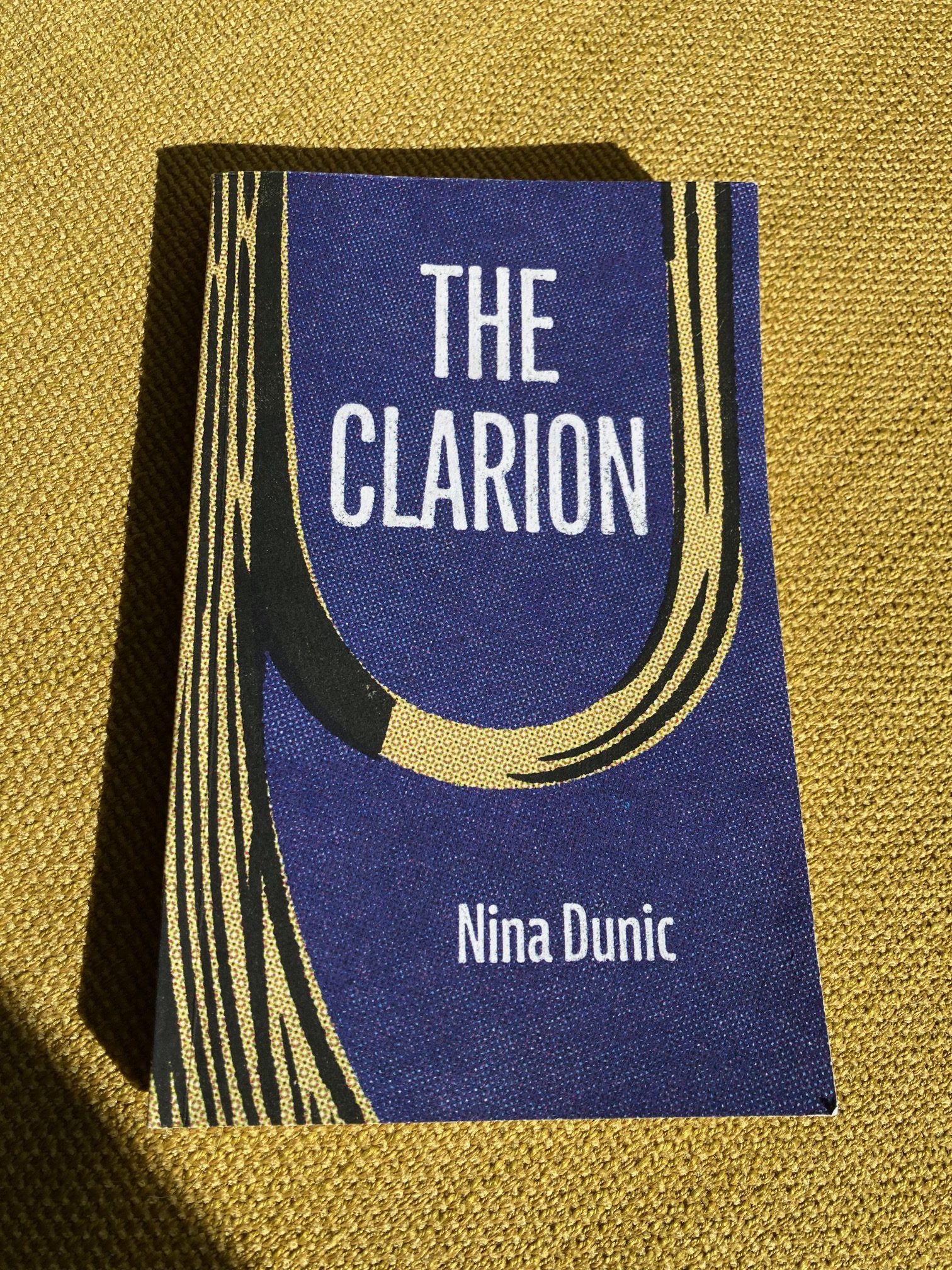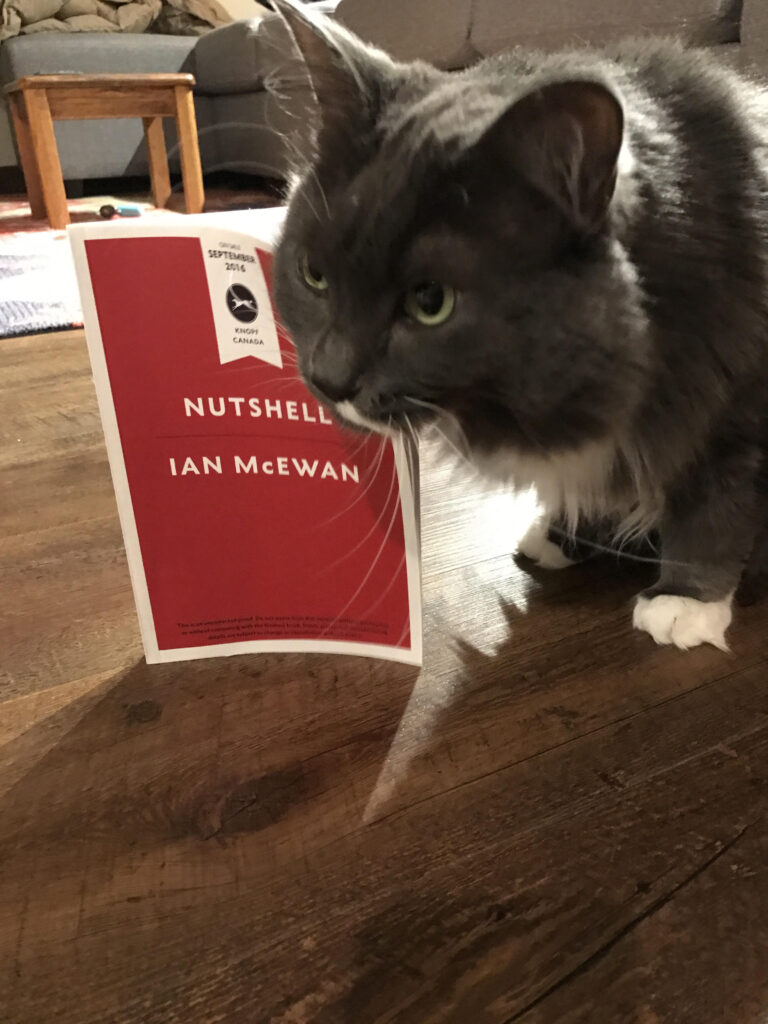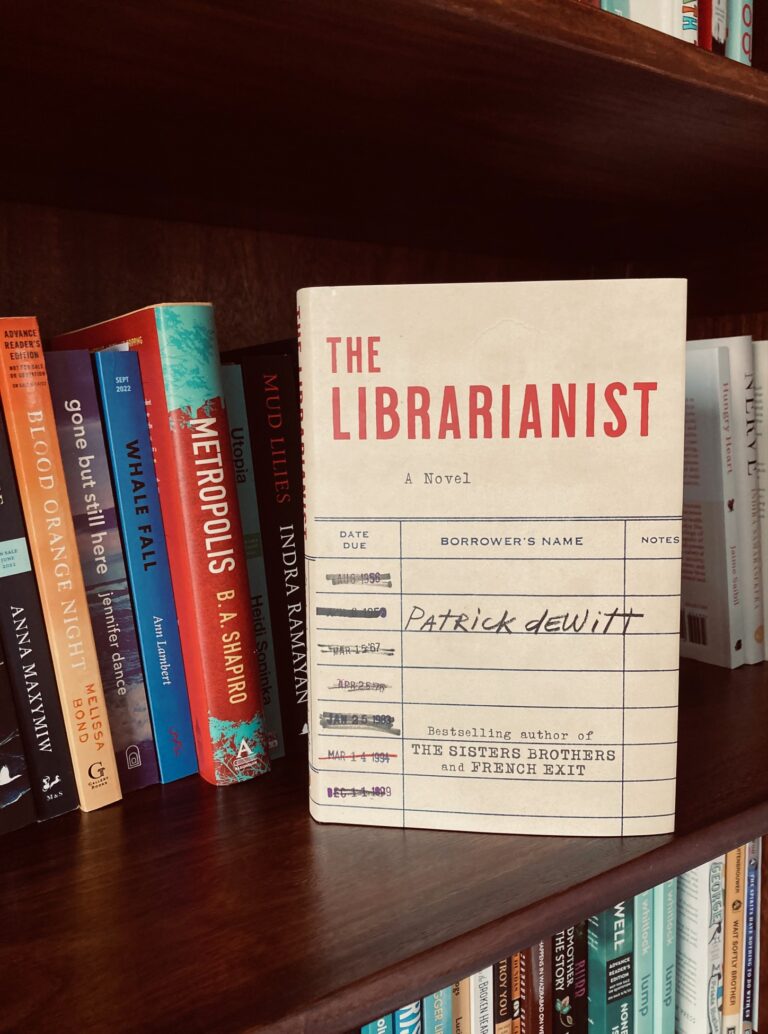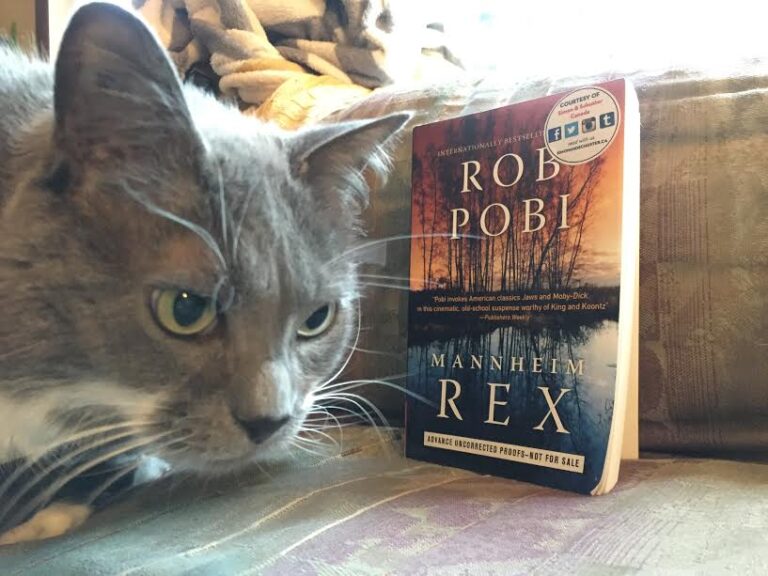Book Review: The Clarion by Nina Dunic

When the Scotiabank Giller Prize Longlist was announced in September, I was delighted to learn that a few books on my shelf were part of it, The Clarion by Nina Dunic being one of them. Coming in at a scant 203 pages, this is a short novel published by a very small press; two great reasons to read it. I rarely find long page counts necessary, and the spare prose in this book is the perfect example of why less is more.
Plot Summary
Peter and Anastasia (Stasi) are siblings, but lead very different lives within the same metropolitan city. Peter does prep in a restaurant kitchen, making a scant but satisfying living. He also plays the trumpet, and we meet him the morning of an audition as he is working through his nerves. Stasi is a determined mother and wife, dedicated to her career in a start-up fashion company that has finally found success. She is passed over for a promotion by an external hire, and finds herself mired in bitterness and despair over this setback. Peter has his vices; drinking and doing drugs in clubs when he can barely afford food, while Stasi continues a long-term affair, hiding a burner phone in the liner of her purse which she uses to communicate with her lover. At times their lives couldn’t be more opposite; Peter is barely scraping by while Stasi speeds away in her luxury vehicle, Peter has very few friends and no family outside of his sister, while Stasi luxuriates in being alone whenever possible, which isn’t often. Both are seeking something, but neither is sure what they are after. Other than the results of the audition and a brief interlude of therapy, there is very little action in the plot. Instead, Dunic takes readers on a meandering journey through the lives of these two people as we luxuriate in vivid scenes and sentences rather than page-turning climaxes.
My Thoughts
The word ‘clarion’ can refer to a kind of trumpet used in war, or a clear shrill sound. A ‘clarion call’ is a request for action, and the fact that these characters embody a distinct lack of action is done on purpose. Stasi takes some steps in her life to get what she wants, but Peter floats above everything, never showing a significant amount of emotion and constantly analyzing and the people around him in his own head. Alcohol and drugs are a way of interrupting his thoughts and forcefully placing them on a new track.
The siblings’ muted approach to life is explored when Peter realizes how vastly different his generation is compared to the old man he finishes talking to:
“Those soldiers got PTSD from the slaughter of men in fields far from home; we were lonely and online…We never got called to anything great, or terrible; we were as separate as hard, round stones on a grey beach. And we bickered.”
-p.197 of The Clarion by Nina Dunic
Sadness and loneliness permeate this entire novel. Peter finds fleeting joy in things, even going so far as to mention beautiful moments to his coworkers, or friends in a club, but he seems lost, happiness rarely shining through his monotonous schedule. He spends much of his time alone, in his head. Stasi is the more obviously sad character, disconnected from her family even though she claims they are the center of her world. She isn’t so much selfish, as she is confused. Her affair offers her distraction and sexual pleasure, but not an actual connection.
The most telling part of the novel is when the siblings meet for lunch, and that moment is retold first through Peter’s perspective, and then through Stasi’s perspective. Of course both are vastly different, which reminds readers how the variation in experiences can vary from person to person, even those who are family. Are they each experiencing their own existential crisis? Perhaps, but this book doesn’t attempt to answer any of these overwhelming questions. Instead, it gives us a snapshot into two people’s lives, offered alongside descriptive writing that forces you to slow down and consider the words chosen and the meaning behind them.






I like the idea of one scene told from two different perspectives. But it sounds sad!
It is more..melancholy…if that makes sense
Eeeeehhhhh…..character-driven novels aren’t usually my jam, and this one has two depressing leads.
That is does! This one is definitely an acquired taste.
This author has an authentic voice. The 2 main characters and the peripheral ones, are beautifully portrayed in the moments of their lives. This is a book about loneliness, lack of connections, obviously according to the comments here, not a book for everyone. Very touching, and I felt less lonely reading it. A gorgeous debut. She stayed true to the characters, no easy everyone lived happily ever after. Who does? Spoiler alert. At the end, Peter is offered a job at the restaurant where he had his audition. The reader may say wow, what a chance for him. This reader said to herself: Okay Nina, you’re not going to let us know whether he accepts the offer. Right in character. We have hope because we may want that for him. The question she poses is “What do people want, if you know that, you know the person”. Do we know Peter? When Stasi opens the door to her neighbour at the end, the neighbour returns the bracelet she anonymously left for the greiving mother. She tells the mother “I didn’t know what to do”. The mother replies “You didn’t need to do anything”. And the stoic, in charge of everything Stasi doesn’t show much emotion facially, except for a tear slowly making its’ way down her cheek. Subtle, not mawkish, another offer of a possible connection to herself., should she choose. There is so much to appreciate in the writing of this book. There is so much going on inside these people. Interested in what this author does next. This may be a slim book, but not slight in impact. I loved it.
Well said Sandi, it’s a beautiful little novel, deserving all the attention it got!